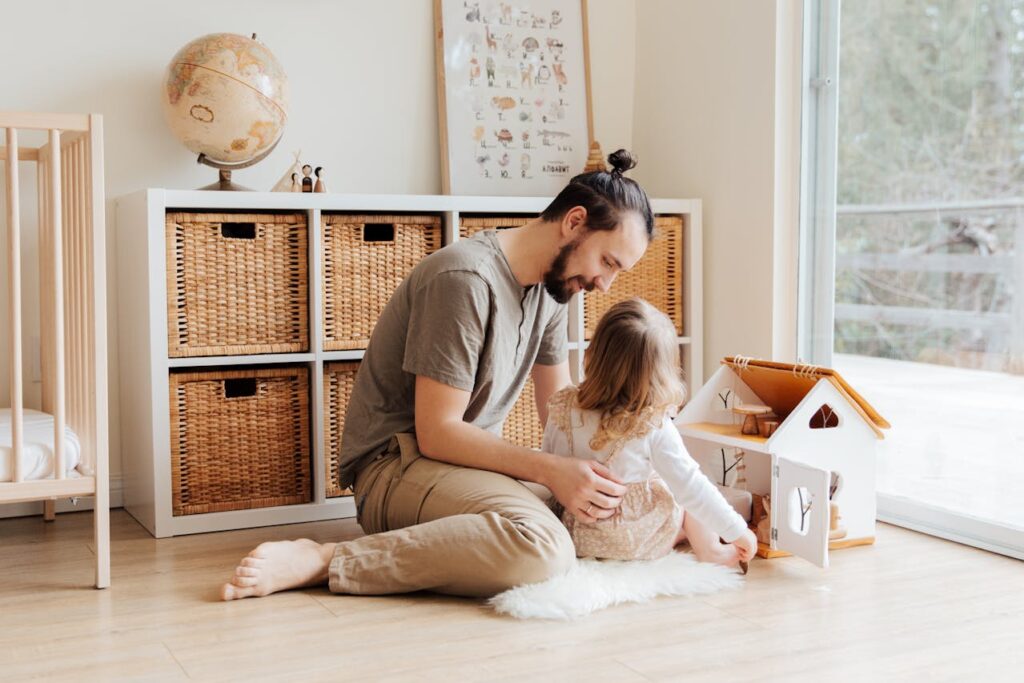The effects of praising in parenting are profound and impactful. Praise serves as a vital tool for positive reinforcement, allowing parents to express approval and encouragement. When children are praised, it not only boosts their self-esteem but also motivates them to continue positive behaviours, reinforcing their sense of achievement and self-worth.
As parents, our primary aim is to help children develop good habits and behaviours through consistent practice. The effects of praising play a significant role in this process, increasing the chances that children will repeat and internalize these positive actions.
Praising can be viewed as a short-term strategy that leads to long-term success. By offering genuine and timely praise, parents can guide their children toward forming lasting, positive habits. Once the target behaviour becomes a natural part of the child’s routine, the need for constant praise gradually reduces. Instead, the child learns to carry forward their positive behaviour independently, a testament to the lasting effects of praising done right.

There are 2 types of praise.
1. Routine Normal Praise
This is the everyday praise we commonly use and are familiar with.
- Children thrive on this kind of recognition, and it strengthens your bond with them.
- Simple yet effective, routine praise fosters a positive and loving relationship.
2. Special Praise That Encourages Behavioral Change
This type of praise goes a step further, focusing on reinforcing desired behaviors.
- Be enthusiastic and expressive: Use an excited tone, gestures, and facial expressions to convey your approval.
- Be specific: Clearly mention what the praise is for (e.g., “Amazing! You completed your homework on time!”).
- Add non-verbal gestures: A pat on the back, a warm hug, a high-five, or a gentle kiss enhances the impact of your words and makes the praise more memorable.
For making a change in behavior effective, all factors mentioned under special praise have to be applied together. Few examples are shown below.

Selecting Specific Behaviors to Praise
Praising starts with identifying the exact actions or behaviors you want to encourage in your child. This is a crucial first step in shaping positive habits.
- Define the behavior: Clearly identify the specific good behavior you want your child to develop. This could range from completing homework on time to sharing toys with siblings.
- Be observant: Stay attentive and watch for moments when your child demonstrates the desired behavior. Acknowledge and praise it immediately to reinforce the action.
- Follow the praise formula: Ensure each instance of praise includes the three components of special praise-enthusiasm, specificity, and non-verbal gestures.
Start by focusing on one or two key behaviors at a time to avoid overwhelming your child and to ensure consistency in reinforcement.
Here are some examples of good behaviors to consider praising:



By carefully selecting and consistently praising specific behaviors, you set the foundation for long-term positive growth in your child.
How to Make Praise Effective
- Praise Immediately After the Action:
Timeliness is key to effective praise. Acknowledge the good behavior as soon as it happens to reinforce the connection. For example, if your child washes their hands, say, “That’s great, Sam! You washed your hands,” immediately after the action. - Praise Increments of Progress:
Recognize and praise efforts as well as achievements. For example, if your child spends more time than usual doing homework, praise their dedication by saying, “You’ve worked really hard on your homework today—well done!” - Avoid Generic Praise:
Empty praise like “That’s great!” or “Good job!” without context loses its impact. Be specific about what you’re praising, such as, “I’m so proud of how you shared your toys with your friend.” - Focus on Actions, Not the Child:
Praise the behavior, not the child’s character. For instance, instead of saying, “You’re a good boy because you cleaned your room,” say, “You did a great job cleaning your room!” This avoids unintentionally implying that they’re “bad” when they don’t perform the desired behavior. - Keep Love Unconditional:
Never tie your love to their behavior. Avoid statements like, “We love you because you did this.” Children need to know that parental love is unconditional. Reassure them frequently that your love is not dependent on their actions. - Avoid Making It About Yourself:
Do not frame praise around your emotions, such as, “You’ll make us happy if you do this.” Instead, emphasize that good behaviors are important because they are the right thing to do, not because they please others. Make it clear that your happiness and love are not conditional on their actions. - Never Condemn or Compare:
Avoid following praise with criticism or comparisons, such as, “Great! You picked up your toys. Why can’t you always be like this? Why can’t you be good like your sister?” This undermines the praise and can lead to feelings of inadequacy or resentment. Instead, focus solely on the positive behavior at hand.
By following these guidelines, your praise will be meaningful and effective in shaping positive behavior in your child while fostering their confidence and emotional well-being.
